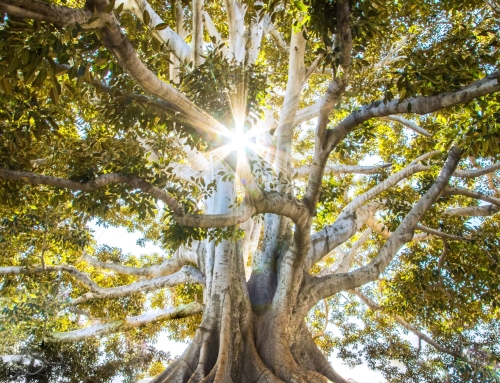Sermon Summary
Leviticus 13 – Eschatological understanding of the Feast of Tabernacles
Today we will look at understanding the Feast of Tabernacles from an eschatological viewpoint. God gave 3 commands in regard to this feast. First, it is to be celebrated at the turn of the year (Exodus 34:22), and signifies entering into a new year, time & space. Second, the joyous celebration is to last for 7 days (Deuteronomy 16:13-15; Leviticus 23), as the 7 days are to represent eternal time in the new Jerusalem when there will be no more sorrow, sadness, tribulations and pain. Third, the Lord will smite those who do not go up to celebrate the Feast of Tabernacles (Zechariah 14:18).
1. Burnt offering given during the Feast of Tabernacles
Over 7 days, God commands them to give burnt offering, grain offering & sacrifices of bulls along with goats and sheep. Number 29:12-40 says that on the first day which is the 15th day of Tishri, 13 bulls were to be given. On the 16th day, 12 bulls; on the 17th day, 11 bulls; and so on. Altogether 70 bulls are offered over 7 days. Number 70 has significance in the bible. 70 represents the number of God’s chosen people, the nation of God. The children of Noah’s 3 sons in Genesis 10 numbered 70. The number of Jacob’s family members who entered Egypt was also 70; there were 70 elders representing Israel in the wilderness journey & Jesus had 70 followers in addition to the 12 disciples. Therefore, the Feast of Tabernacles is a celebration of those who have become God’s people and have come into His tent to enjoy His blessings. God & His glory will come upon them through these 7 days celebration. May we be one of the 70! But we need to receive an invitation to go into God’s tent, which He has extended to us freely.
2. Feast of Tabernacles in Zechariah and Revelation
Zechariah and Revelation explain that even the Gentile nations who used to stand against God and His people, now redeemed and saved will also come to observe the Feast of Tabernacles in the end times at the coming of the Lord. The people of God are called into His tent and there will be an eternal celebration (Zechariah 14:16-19). But those still outside the city of Jerusalem, who have not repented, will receive the judgment of the Lord.
The Tishri season begins on the 1st day with the Feast of Trumpets, a time when the Word of God is proclaimed. It is followed by the Day of Atonement when sins are forgiven on the 10th day of Tishri. And from 15th – 21st of Tishri is the final celebration of the Feast of Tabernacles. In Revelation, it is referenced by the sickle. The reaped are the saved ones and those who are not, are judged (Revelation 14:14-20). This is the period of the harvest of the vine is when the fruit of the vine is put into the press of the wrath of God to be crushed to make wine. This was familiar to the Jews as this was what they did during the harvest month of Tishri when they would trod on the grapes to make wine outside the city, especially during the Day of Atonement. Revelation 16 is about the pouring out of the 7 bowls of judgment. The bowls contain the wine that was pressed, the wine of the wrath of God is now being poured out one by one. Revelation 16 is about the 7th and final bowl of wrath. When the wine pressed in Revelation 14 is poured out from the bowl. Satan and all of God’s enemies are judged.
Revelation 19:11 describes the perspective from the Lord of victory on a white horse, who wages war on those who still have sin. May we find peace, reconciliation, salvation and redemption before this happens (Revelation 19:12-16; 19-20)! The new Jerusalem, God’s tabernacle coming down out of heaven is introduced in Revelation 21:1-3. So Revelation is about sealing the people of God (Revelation 7:9-17), the blowing of trumpets (which is proclamation of the Word of God) and the chance for repentance. And those who repent will finally be gathered into the tabernacle of God. Revelation 7 describes the multitudes wearing robes washed white by the blood of the Lamb, holding palm branches (Leviticus 23:40). According to one interpretation, the 4 types of leaves and branches represent:
- Foliage of beautiful trees are beautiful trees representing those who follow God’s laws and statutes to bear fruits and have beautiful aroma.
- Palm branches have big leaves, tall, good aroma, but not many fruits. It is one who knows the Word well and even teaches well but not much fruit is borne through his actions and life.
- Boughs of leafy trees look rich and abundant from outside but has no aroma or fruit, just full of leaves. Remember Jesus cursing the fruitless fig tree? It refers to one who talks a lot but has no interest in God’s Word or doing His work.
- Willows of the brook only suck up the water of the brook. They are those who just attend church, but are not interested in the Word or living a life of faith. They will dry up really fast when taken out of the brook.
These 4 types of trees represent people of Israel and also us. Each of us have all 4 aspects in different ways. But what is interesting is that these are all used to make the tabernacle. And these are in the hands of the Israelites when they celebrate the Feast of Tabernacles and ask God for His blessings.
In conclusion,
how do we, who are like these 4 types of branches, fruitless, full of leaves and weak, receive the blessing of entering the tabernacle? These different trees give us hope as all of them made it into the new Jerusalem, the eternal tabernacle? The key is to receive the blessing of the heavenly water. That is why during the Feast of Tabernacles of 7 days, they wave these branches and leaves for the purpose of asking God for the blessing of water. The Israel soil has a very unique characteristic, It is so dry that no tree can bear fruit, very much like our hearts. But when water is given, the soil is able to release its huge store of minerals and nutrients. Likewise, the blessings our heart wants to give, can only be released when God’s water is added. With God’s water, we become a fertile land that will produce many fruits (Isaiah 48:20-21; Joel 3:18; Zechariah 13:1; 14:8).
Jesus is the water we need (John 7:38). And this is the water Zion Church must provide so all who come and hear the Word may repent and be saved!
AMEN.




